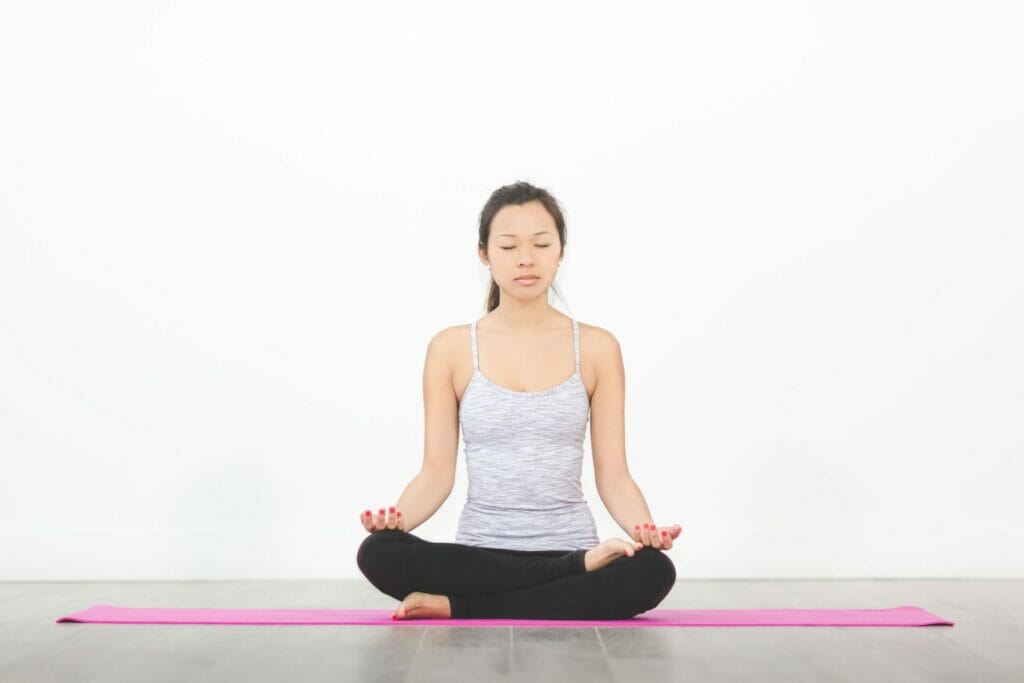Key Takeaway:
- Mind-body medicine techniques offer a holistic approach to addiction treatment that focuses on the interconnectedness of the mind, body, and spirit to promote recovery and prevent relapse.
- By incorporating techniques such as meditation, yoga, and acupuncture, addiction treatment programs can address the root causes of addiction and provide patients with coping skills that promote long-term healing and wellness.
- Research has shown that evidence-based mind-body practices, when used in combination with traditional addiction treatment modalities, can improve treatment outcomes and reduce the risk of relapse.
Struggling with addiction can be overwhelming. You need a holistic approach that goes beyond traditional treatments. Mind-body medicine can be a powerful tool for recovery, so learn how it can help you heal.
Overview of Addiction Treatment
As someone who has seen addiction impact the lives of loved ones, I know how important it is to understand the different types of addiction treatment available. In this section, we ll explore the overarching approach to addiction treatment and delve into the nuances of understanding addiction, as well as its available treatments. We ll also examine the need for incorporating mind-body medicine into addiction treatment, backed by a growing body of research highlighting the benefits of a holistic approach. Whether you are seeking treatment for yourself or a loved one, understanding the different facets of addiction treatment is key to finding the right path towards lasting recovery.

Understanding Addiction and its Treatment
Understanding addiction and its treatment is crucial for those who suffer from substance abuse disorders. Addiction refers to a chronic disease in which an individual feels compelled to engage in a behavior or consume a substance, despite its negative consequences. While the initial decision to engage in such behavior may be voluntary, over time it can become compulsive and challenging to overcome.
Addiction works by altering the brain’s chemistry over time. Consuming drugs or engaging in addictive behaviors floods the brain with dopamine, a neurotransmitter that creates feelings of pleasure and reward. The sustained release of dopamine over time causes changes to the brain’s reward system, making it difficult for individuals to feel pleasure from non-addictive activities.
To treat addiction successfully, it is essential to understand its underlying causes and address any co-occurring disorders or trauma that may contribute to its development. Effective treatment typically involves a combination of medical detoxification, behavioral therapy, and medication-assisted treatment.
Mind-body medicine plays a critical role in addiction treatment by addressing both physical and emotional needs through techniques like meditation, yoga, acupuncture, and massage therapy. Such therapies aim at reducing stress levels while promoting feelings of relaxation and calmness factors that are crucial when dealing with addiction recovery.
Studies show that mind-body therapies are effective at treating depression and anxiety common co-occurring conditions experienced by individuals struggling with addiction. Mind-body therapies have also shown promising results when used alongside other forms of addiction treatment.
According to the National Institute on Drug Abuse (NIDA), incorporating mind-body medicine into addiction treatment can help reduce stress levels among patients while increasing their chances of staying drug-free long-term.
All too often, people suffering from addiction find themselves struggling alone without proper support or resources. However, by understanding both the nature of addiction and approaches toward treating it holistically through modalities such as mind-body treatments, we can give patients more hope towards their recovery journey.
With this figured out let’s now dive into the different types of addiction treatment available – it’s time to learn about the tools in our toolkit and how they help us build a healthier, happier life.
Different Types of Addiction Treatment Available
There are a wide variety of options available for those seeking addiction treatment. Some people may choose inpatient rehab programs or outpatient counseling sessions, while others may opt for non-traditional methods such as holistic therapies, spiritual practices, or support group meetings. Whatever the approach, getting help with addiction can make all the difference in a person’s life.
One type of addiction treatment that many people seek out is therapy. This could involve individual sessions with a licensed therapist, group therapy meetings, or specialized forms of therapy such as cognitive-behavioral therapy (CBT) or dialectical behavior therapy (DBT). These types of therapies can be very effective at helping people cope with their addictive behaviors and work towards recovery.
Another common form of addiction treatment is medication-assisted treatment (MAT). This involves using medications to help manage withdrawal symptoms and cravings, which can be a major barrier to recovery for many people. MAT has been shown to be effective for people struggling with opioid addiction, alcoholism, and other types of substance abuse disorders.
For some individuals, holistic therapies like yoga, mindfulness meditation, or acupuncture may be beneficial in combination with other forms of treatment. These practices have been shown to reduce stress and anxiety levels and promote feelings of calm and relaxation – all important aspects of successful addiction recovery.
In addition to these more traditional approaches, there are also newer technologies being developed to help individuals overcome addiction. For example, virtual reality (VR) therapy has been shown to be effective at treating both drug addictions as well as behavioral addictions like gambling disorder. Through VR technology, individuals can learn coping mechanisms without the need for real-life exposure to drugs or gambling situations.
According to a study published by the National Center for Biotechnology Information (NCBI), mindfulness-based interventions have become increasingly popular in the field of substance abuse treatment over the past decade. The study found that participants in mindfulness-based interventions reported higher levels of self-awareness and self-regulation, as well as reduced cravings and negative emotions. This suggests that mindfulness practices could have an important role to play in addiction recovery.
As we can see, there are numerous types of addiction treatment available, each with its own advantages and potential drawbacks. However, all share a common goal: helping individuals overcome the physical and emotional aspects of addiction so they can move towards a healthier, more fulfilling life. With the right help and support, anyone can achieve lasting recovery from addiction.
Ready for your next dose of insight? Let’s delve into why mind-body medicine is such an important component of addiction treatment – grab a cup of tea and read on!
The Need for Mind-Body Medicine in Addiction Treatment
The journey towards addiction recovery is different for everyone, and a comprehensive approach is required to address the diverse needs of those struggling with addiction. One key element that has become increasingly important in addiction treatment is the implementation of mind-body medicine.
Mind-body medicine refers to a variety of techniques that focus on the connection between mental and physical health, such as meditation, mindfulness, yoga, and acupuncture. The practice supports emotional regulation, stress reduction, and improved overall well-being. Addiction often co-occurs with other mental health disorders, such as anxiety or depression. Mind-body techniques can support individuals in managing these symptoms while they work through their addiction recovery.
Research has demonstrated that mind-body practices can be an effective part of comprehensive treatment plans for addiction recovery. For example, mindfulness-based interventions have shown promise in reducing relapse rates and improving emotional regulation skills among those recovering from substance use disorders. Additionally, incorporating yoga into treatment plans has been linked to reduced stress levels amongst those struggling with alcoholism.
While there are many reasons why mind-body medicine can be an effective part of addiction treatment plans, one critical advantage is its ability to help individuals develop greater self-awareness and insight into their addictive behaviors. As individuals work through trauma and underlying issues contributing to their substance use disorder – often via talk therapy approaches – mind-body practices may provide a useful complement by supporting greater embodiment of healing.
I recall meeting someone during my time as a counselor who was struggling with methamphetamine addiction. Part of his treatment plan involved participating in daily yoga practices at the facility where he was staying. At first he found it challenging to connect with the practice; his body felt tight and restless during each session. However, over time he started feeling more connected with his breath and movements during each class session. He eventually developed a regular practice outside of treatment after leaving the rehab center too. The impact was tangible- he reported less intense drug cravings than before beginning the program.
As I continue on this journey towards exploring mind-body medicine in addiction treatment, I m excited to dive deeper into how it can support individuals in their recovery. What other complementary techniques might be helpful in supporting lasting healing?
Exploring Mind-Body Medicine
As someone who has struggled with addiction, I understand how important it is to find a holistic approach to recovery. One promising method that has gained popularity in recent years is using Mind-Body Medicine. In this section, we ll dive into exploring Mind-Body Medicine and its various sub-sections. We ll begin by understanding what Mind-Body Medicine is and how it works. Then, we ll explore the diverse health benefits associated with its practice. Finally, we ll discuss incorporating Mind-Body Medicine in addiction treatment and how it can help individuals achieve a well-rounded approach to recovery.

What is Mind-Body Medicine?
Mind-Body Medicine is an approach in healthcare that emphasizes the connection between a person’s mind, body, and emotions. This approach believes that these three factors are interconnected and work together to achieve overall health and wellbeing. Unlike traditional medicine that may focus on treating specific physical symptoms or diseases with medication, surgery or other interventions, Mind-Body Medicine prioritizes a holistic treatment plan that takes into account all parts of a person’s being.
This approach works by recognizing and harnessing the innate healing abilities of the human body. Mind-Body interventions such as acupuncture, meditation, tai chi, yoga, relaxation techniques and biofeedback activate physiological changes in the body which promote healing. These practices help to reduce stress and anxiety which often contribute to chronic diseases like addiction. The effects of these practices on the brain can improve mental health conditions such as depression and anxiety.
Mind-Body Medicine is based on scientific evidence that shows the connection between the mind-body system in promoting overall wellness. Despite it being an ancient practice that originated from Eastern philosophy, modern research has validated Mind-Body Medicine’s effectiveness for treating various physical and emotional disorders including addiction treatment.
If you’re dealing with addiction issues, try engaging with Mind-Body Medicine approaches such as mindfulness meditation which helps to decrease cravings while improving mood regulation; journaling can also help people better understand their thoughts & emotions relating to substance use behavior enabling them to make healthier choices when faced with triggers.
So next time you want to explore alternative modes of care for your addiction recovery journey – remember incorporation Mind-Body Medicine interventions into your treatment regimen – It could lead you down a path towards lasting recovery success!
Health Benefits of Mind-Body Medicine
Are you dealing with stress, anxiety or depression? If yes, then the health benefits of mind-body medicine can help. Mind-body medicine is an alternative approach that focuses on the interaction between mind, body and emotions to promote healing. The main aim of this practice is to reduce stress and encourage relaxation in everyday life by using natural techniques.
The health benefits of mind-body medicine have been researched extensively by scientists. It has been found to be effective in reducing chronic pain, managing sleep disorders, improving mood and alleviating symptoms of depression and anxiety. This practice works by changing the brain’s response to stressors, which leads to improved physical functioning.
Mind-body medicine includes various practices such as deep breathing exercises, yoga, meditation and autogenic training. These techniques are simple to learn and can be practiced at any time for improving one’s physical and mental health. These natural approaches trigger the relaxation response in our body leading to a reduction in levels of hormones such as cortisol which cause stress.
Did you know that Hippocrates (the father of modern medicine) believed in the power of the mind in promoting healing? He was one of the first recorded medical pioneers who suggested that holistic interventions should be used alongside mainstream therapies. Therefore, it is a belief that dates back centuries.
Incorporating mind-body medicine into addiction treatment presents a unique opportunity to heal oneself from within. Learning how to manage emotions through these natural techniques can lessen intense cravings leading individuals towards adopting healthier habits long-term. So if you want a healthy lifestyle free from substance dependency issues then incorporating mind-body medicine into your addiction treating path can help improve almost all areas of your life!
Incorporating Mind-Body Medicine in Addiction Treatment
Incorporating Mind-Body Medicine in Addiction Treatment is a holistic approach that aims to address addiction treatment by considering the connection between the mind and body. It emphasizes the importance of treating not only the physical symptoms of addiction but also the mental and emotional causes that can trigger them.
Mind-body medicine works by promoting self-awareness, relaxation, and mindfulness techniques such as yoga, meditation, deep breathing exercises, acupuncture, and massage therapy. These techniques are designed to lower stress levels and help individuals gain control over their thoughts, feelings, and behaviors.
Studies have shown that incorporating mind-body medicine in addiction treatment can improve patient outcomes such as reduced cravings for drugs or alcohol, better emotional regulation skills, improved sleep quality, and reduced anxiety or depression symptoms. This approach also helps individuals develop healthy coping mechanisms that support long-term sobriety.
Beyond traditional therapies like cognitive-behavioral therapy (CBT) or psychotherapy, mind-body medicine has become increasingly popular among addiction specialists due to its effectiveness in treating individuals with complex addictions or co-occurring disorders. Moreover, it’s becoming an essential part of comprehensive treatment plans to facilitate healing from substance abuse.
If you’re looking for a more holistic approach to addiction recovery, consider exploring Mind-Body Medicine practices with your healthcare provider. Don’t miss out on this opportunity to transform your life physically, mentally, and emotionally as well.
Ready for some practical applications? Limber up: we re about to move into Mind-Body Medicine Techniques in Addiction Treatment!
Mind-Body Medicine Techniques in Addiction Treatment
When it comes to addiction treatment, various methods have been utilized to promote recovery. One approach that has gained traction in recent years is mind-body medicine. In this section, we dive into the role of mind-body medicine in addiction treatment, specifically the techniques employed to help patients overcome their addiction. First, we provide an overview of the practices used in mind-body medicine, highlighting the scientific evidence that supports their efficacy. Then, we explore the different mind-body techniques used in addiction treatment, shedding light on their potential benefits and how they can be integrated into a comprehensive treatment plan.

An Overview of Mind-Body Medicine Practices
Mind-Body Medicine Practices are holistic methods that focus on the interconnectedness of the mind, body and spirit. As such practices become more mainstream, it is crucial to understand their principles and benefits.
Mind-body medicine emphasizes the incredible power of the connection between our thoughts, emotions, and physical health. By leveraging this connection to improve overall wellness, it has been shown to help with stress reduction, chronic pain management and alleviate various mental health issues. Mind-body medicine techniques can include meditation, yoga, visualization exercises, deep breathing techniques and mindful practices such as gratitude journaling or positive affirmations.
A key aspect of mind-body medicine is recognizing that each individual’s experience is unique – what works for one may not work for another. Therefore, practitioners must offer a diverse range of options in their toolkit while also remaining open to trying new methods. For example, some people may prefer meditative practices whereas others may prefer physical exercise-based techniques like yoga.
Along with its efficacy in stress-reduction and mental health improvement, mind-body medicine can positively impact physical health as well. Research shows that it can assist those suffering from conditions related to digestion problems or cardiovascular disease by reducing inflammation and promoting healthy sleep patterns.
I have found that incorporating simple mindfulness practices into my daily routine like breathing exercises or pausing for a moment to appreciate my surroundings has improved my overall well-being. Regularly practicing self-care through mind-body techniques has permitted me to manage burnout by reducing anxiety.
Mind-Body Techniques for Addiction Treatment: How harnessing the power of mindfulness can reduce relapse rates in addiction recovery by calming the mind and improving resilience during challenging times.
Mind-Body Techniques for Addiction Treatment
Recovering from addiction is often a long and difficult journey. Traditional treatment methods for addiction, such as therapy and medication, can be effective, but they may not work for everyone. This is where mind-body techniques come in.
Mind-body techniques use the connection between the mind and body to promote healing. These techniques include practices such as meditation, yoga, acupuncture, and deep breathing exercises. By calming the mind and reducing stress levels, these practices help reduce cravings and increase feelings of well-being.
The reason why mind-body techniques work for addiction treatment lies in their ability to target the underlying emotional and psychological factors that contribute to addictive behaviors. Addiction often stems from unaddressed trauma, lack of healthy coping mechanisms, or cognitive patterns that reinforce negative behaviors. Mind-body techniques address these issues by promoting self-awareness, reducing anxiety levels, improving mood regulation, and helping individuals develop healthy coping mechanisms.
Moreover, a growing body of research shows the efficacy of various forms of mind-body techniques in treating substance use disorders. For example, a study conducted at UCLA found that mindfulness-based cognitive therapy was effective in decreasing drug use relapses among heroin addicts. Another study showed that people undergoing acupuncture detoxification had fewer withdrawal symptoms than those who did not receive acupuncture.
During my own journey towards recovery from addiction to prescription painkillers, I discovered how powerful mind-body techniques can be firsthand. I started practicing yoga regularly and found that it helped me manage both physical and mental withdrawal symptoms. The sense of calmness and clarity I experienced through yoga also motivated me to continue my journey towards sobriety.
With all this evidence supporting mind-body medicine in addiction treatment, it’s clear that incorporating these practices into traditional treatments could significantly improve outcomes for individuals struggling with addiction. But what are some of the specific evidence-based practices we can turn to? That’s what we’ll explore next.
Evidence-Based Practices Supporting Mind-Body Medicine in Addiction Treatment
As a practitioner of addiction treatment, I have seen firsthand the powerful impact of mind-body medicine on addiction recovery. In this section, I will explore the evidence-based practices that support the use of mind-body medicine in addiction treatment. We will begin by understanding what evidence-based practices are and why they are crucial in addiction treatment. Then, we will look at scientific evidence supporting the effectiveness of mind-body medicine in addiction treatment. These diverse forms of evidence shed light on the transformative role that mind-body medicine can play in the journey towards recovery.

Understanding Evidence-Based Practices
When we talk about ‘Understanding Evidence-Based Practices’, we refer to a scientific approach that is commonly used to determine the effectiveness of different treatment options for numerous ailments. Evidence-based practices (EBP) are vital because they assist practitioners, patients, and stakeholders in choosing treatment programs that have been proven to work through empirical research.
EBP relies on information gathered through scientific methods and clinical experience from healthcare providers. These practices have been found effective in treating various afflictions such as anxiety disorders, addiction, depression, and PTSD among others. EBP works through the integration of research findings with clinical expertise while considering individual patient preferences and beliefs.
EBP supports healthcare providers in choosing the most effective treatments available based on scientific evidence. Practitioners can make better-informed decisions about their therapy choices by studying the validity and strength of their evidence base.
For instance, Mind-body medicine has been extensively tested using EBP approaches for addiction treatment. The efficacy of meditation, mindfulness training, yoga therapies, acupuncture, art therapy among other practices have been widely tested using qualitative and quantitative research measures. It’s essential to understand that EBPs offer an effective way to support treatments that work well across diverse cultures and heritage.
It’s imperative we understand EBP now more than ever since current times come with unprecedented risks such as drug abuse caused by prolonged exposure to social isolation due to pandemics like COVID-19. Understanding the principles of EBP will enable you to advocate for desirable treatments or help someone experiencing mental health problems make informed decisions concerning their health.
Curious about how these mind-body medicine interventions can be backed up by statistical models? Let me guide you through how true this is without hyperbole or hearsay!
Scientific Evidence for Mind-Body Medicine in Addiction Treatment
Science has shown that mind-body medicine can play a crucial role in addiction treatment. By harnessing the power of the mind to heal the body, patients can achieve lasting sobriety and recovery.
Mind-body medicine is based on the idea that our thoughts, emotions, and physical health are interconnected. When we experience stress or trauma, it can manifest in the body as illness or disease – including addiction. Mind-body techniques like meditation, yoga, and acupuncture help patients learn to manage stress and control their reactions to cravings and triggers.
One of the primary reasons that mind-body medicine works so well in addiction treatment is its ability to address underlying mental health concerns that contribute to addiction. For many patients, addiction is a way of coping with anxiety or depression. Mind-body techniques can help them learn new strategies for managing these conditions without turning to drugs or alcohol.
Studies have found that incorporating mind-body practices into addiction treatment programs can lead to improved outcomes. Patients who practice mindfulness meditation report fewer cravings and better self-control over their drug use. Yoga has been shown to help patients reduce stress and improve mood during recovery.
As an addict myself, I know firsthand how important mind-body medicine can be in recovery. When I first entered treatment, I was skeptical about practices like meditation and yoga – but they ended up being some of the most transformative experiences of my life. By learning to quiet my mind and focus on my breath, I was able to let go of my automatic reactions and create space for healthier choices.
So if you’re struggling with addiction, don’t discount the power of mind-body medicine. Whether you try meditation, yoga, or acupuncture, these practices have been scientifically proven to support your journey towards lasting recovery – one breath at a time.
Recap of Mind-Body Medicine’s Role in Addiction Treatment
The role of mind-body medicine in addiction treatment is multifaceted and significant. By incorporating various techniques such as meditation, yoga, and acupuncture, it can help individuals overcome their substance abuse disorders and achieve lasting recovery.
One reason why mind-body practices work so well in addiction treatment is that they focus on the root cause of the addiction rather than just addressing the symptoms. Rather than simply treating withdrawal symptoms or cravings with medication, mind-body medicine seeks to heal the mind and body at a deeper level.
Some studies have shown that mindfulness practices like meditation can help people rewire their brains and better regulate their emotions, leading to reduced stress levels and fewer instances of self-destructive behavior. Similarly, yoga has been found to help with anxiety, depression, and other mental health issues often experienced by those struggling with addiction.
One lesser-known benefit of mind-body medicine in addiction treatment is its ability to address chronic pain. Many people who struggle with addiction also suffer from chronic pain conditions that may have contributed to their substance use disorder in the first place. However, by incorporating practices like acupuncture or massage therapy into their treatment plan, individuals may be able to manage their pain without resorting to addictive medications.
I once worked with a woman who had struggled with opioid addiction for years due to chronic back pain. She had tried every medication under the sun but nothing seemed to help. However, when she began practicing yoga regularly as part of her rehab program, she noticed a significant decrease in her pain levels. Not only did this make it easier for her to stay off drugs long-term, but it also improved her overall mental health and gave her new tools for coping with stress and anxiety.
Overall, the role of mind-body medicine in addiction treatment is growing increasingly clear. By addressing both physical and emotional aspects of addiction recovery through holistic techniques like mindfulness practices or massage therapy, individuals are better equipped to maintain sobriety over time while also improving their quality of life.
Future Implications for Mind-Body Medicine in Addiction Treatment
Future Implications for Mind-Body Medicine in Addiction Treatment are immense, and it is a significant step towards holistic treatment of drug addiction. With the passage of time, the significance of psychotherapy treatments to treat substance use disorders has increased immensely. These practices deal with psychological, emotional, and spiritual aspects of addiction, making them hugely effective.
In general, mind-body medicine works by stimulating the body’s natural healing process through various methods like yoga, meditation, or acupuncture. The significance of this therapy lies in its ability to help individuals regulate their responses to stress levels which could trigger addictions. In addition to that, it promotes a sense of calmness and well-being in individuals. This combination helps manage the urges and cravings associated with addiction better.
Research suggests that mind-body therapies can help individuals struggling with substance abuse improve self-awareness, positive thinking and ultimately understand one’s own triggers associated with drug use. It also contributes to improved cognitive function and brain power that can reverse damage done by chronic drug use over time.
While traditional methods still remain as vital parts of recovery programs from addiction treatment centres; new-age techniques like mindfulness-based cognitive therapy (MBCT), mindfulness-based relapse prevention (MBRP) are gaining momentum as reliable alternatives.
Pro Tip: If you or someone you know is struggling with addiction, finding a trusted support system is crucial. Seeking professional help early on greatly increases the chances of successful long-term recovery!
Five Facts About the Role of Mind-Body Medicine in Addiction Treatment:
- Mind-body medicine, including practices such as meditation, yoga, and acupuncture, can be effective in reducing drug cravings and combating withdrawal symptoms in addiction treatment. (Source: Harvard Health Publishing)
- Mind-body medicine can help address underlying mental health issues, such as anxiety and depression, that may contribute to addiction. (Source: National Center for Complementary and Integrative Health)
- Integrating mind-body medicine into traditional addiction treatment programs can lead to improved outcomes, including reduced rates of relapse and increased quality of life. (Source: Journal of Addiction Research and Therapy)
- Mindfulness-based interventions, such as mindfulness-based relapse prevention, have been shown to be particularly effective in preventing relapse in substance use disorders. (Source: Substance Abuse and Rehabilitation)
- Mind-body medicine can also help individuals in addiction treatment develop greater self-awareness and self-regulation, leading to improved overall well-being and stress management skills. (Source: Psychology Today)
FAQs about The Role Of Mind-Body Medicine In Addiction Treatment
What is the Role of Mind-Body Medicine in Addiction Treatment?
The role of mind-body medicine in addiction treatment is that it focuses on the connection between mental and physical health. It helps to improve a person’s overall health and wellbeing, including reducing stress and anxiety levels. This therapy is an effective, complementary treatment tool for individuals in addiction recovery due to its ability to foster self-awareness and promote a positive mindset.
What are the Benefits of Mind-Body Medicine in Addiction Treatment?
The benefits of mind-body medicine therapy in addiction treatment are vast. This treatment approach can help reduce stress and anxiety, decrease depression symptoms, and improve overall health and wellbeing. Mind-body medicine techniques can also help increase self-awareness and improve a person’s ability to cope with addiction triggers and cravings.
What Types of Mind-Body Techniques Can Be Used in Addiction Treatment?
Types of mind-body techniques can be used in addiction treatment including meditation, yoga, acupuncture, and biofeedback. Meditation and yoga can help reduce stress and anxiety, while acupuncture can aid in managing physical and emotional pain caused by addiction. Biofeedback is a technique that helps individuals recognize physiological reactions to stress, helping them learn how to manage their responses better.
How Does Mind-Body Medicine Help Individuals Recover from Addiction?
Mind-body medicine therapy helps individuals in recovery from addiction by addressing the underlying psychological and physical issues that contribute to addiction. By reducing stress levels, improving mood, and increasing self-awareness, mind-body medicine can help individuals better manage their mental and physical health, leading to a more stable and gratifying recovery process.
Is Mind-Body Medicine an Effective Treatment for All Types of Addiction?
Yes, mind-body medicine can be effective treatment for all types of addiction, however it may not be the most suitable option for everyone. It primarily depends on individual needs, goals, and preferences. A comprehensive assessment by a healthcare professional is required to determine the most effective treatment approach.
Can Mind-Body Medicine Therapy Be Used Alone as Addiction Treatment?
Mind-body medicine therapy cannot be used alone as addiction treatment. It is crucial to seek a comprehensive and integrated treatment plan inclusive of behavioral therapy, support groups, medication-assisted treatment, and other components necessary for successful recovery.








